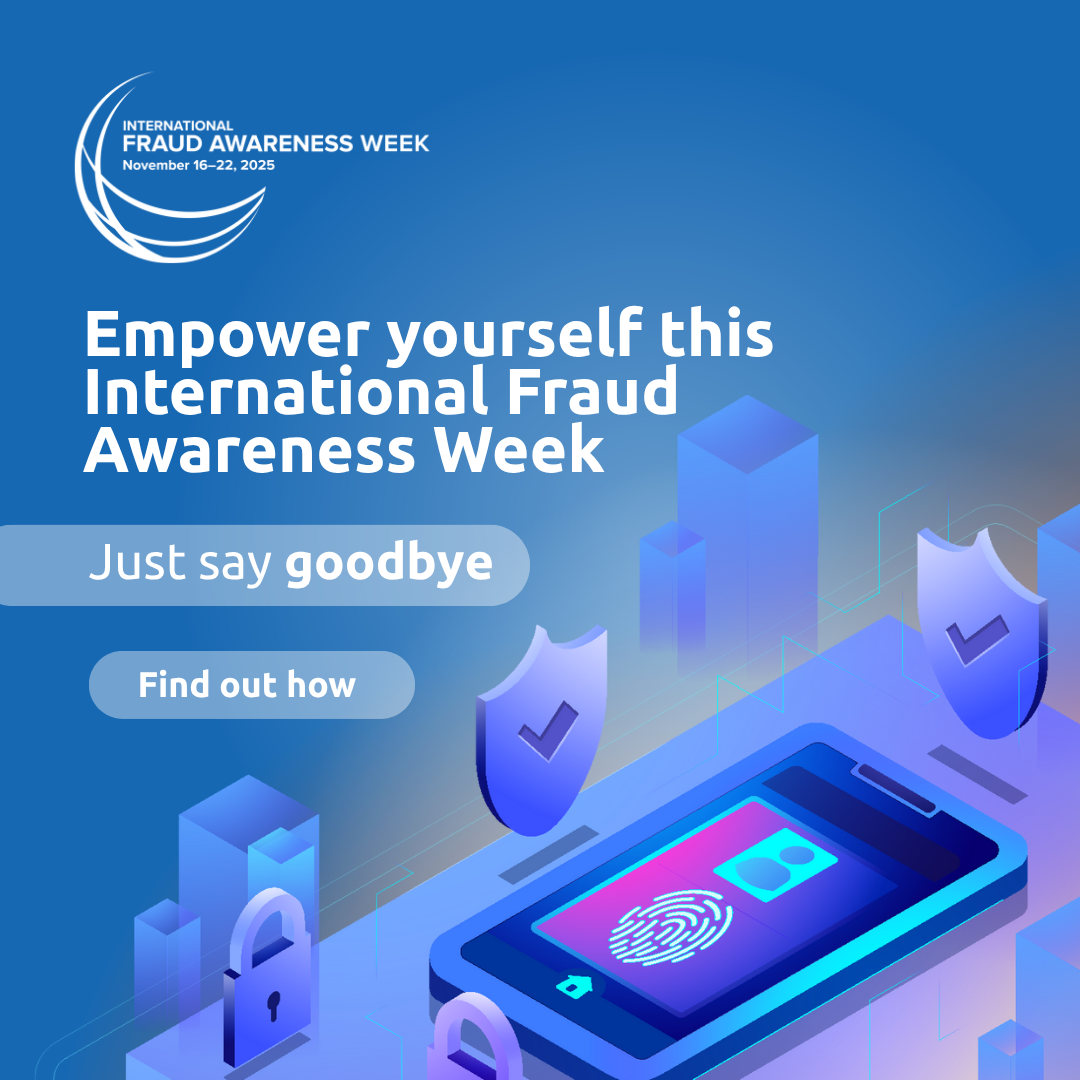
JUST SAY GOODBYE TO FRAUD THIS INTERNATIONAL FRAUD AWARENESS WEEK
Press Releases . 17 November 2025



Press Releases . 17 November 2025
SAFPS CEO, Manie van Schalkwyk, warns that technology has become a significant battleground in the fight against fraud, and scammers are employing various tactics to turn consumers into victims.
The SAFPS has launched the 'Just Say Goodbye' awareness campaign aimed at helping South Africans recognise and respond to increasingly sophisticated phone-based scams. These scams, known as vishing, involve fraudsters phoning victims impersonating representatives from banks, financial institutions, cellular companies, insurers, law enforcement or government agencies to manipulate victims into revealing sensitive information or transferring funds.
Van Schalkwyk warns that these scams are highly deceptive, often targeting both individuals and corporate employees with access to financial systems.
Scammers use psychological tactics and impersonation, often creating a sense of urgency and fear, convincing victims that their accounts or devices have been compromised, that they are in trouble, or that there is an exciting opportunity for them. Victims are then pressured to provide one-time pins, banking credentials, grant access to their device, or even instructed to transfer money.
Common scenarios include receiving a call from your "bank's fraud department" saying there is a problem with your account, or receiving a call from your "cellular company's fraud department" claiming that a SIM swap has been requested on your number and they want to assist you to 'stop it'. Other scenarios include:
"It's important to note that scammers often have some personal information on hand, which they use to build trust and legitimacy," says Van Schalkwyk.
The SAFPS urges the public to 'Just Say Goodbye'; end suspicious calls immediately, do not share information, do research and verify any claims directly with their service provider using official channels. Stop. Think. Verify. Don't get scammed!
Visit the Yima website on www.yima.org.za to report scams and learn more about scam types, how to spot them, and what to do. Keep an eye on the SAFPS and Yima social media platforms for more information.
The public needs to be aware that they are entering into a time of year where scammers and fraudsters are particularly active. The SAFPS warns consumers to stay vigilant during Black Friday (which will be held on 28 November this year), as scammers exploit the surge in online and in-store shopping deals.
In 2022, South Africans spent over R3 billion during Black Friday, with online card-not-present transactions rising by 31%. This increased to R3.2 billion in 2024, continuing the trend of an 11% year-on-year increase observed by First National Bank (FNB). The bank notes that, on Black Friday in 2024, FNB processed 20 million card transactions, with a maximum of 690 transactions per second. The bank reports that it continued to see an upward trend in FNB Virtual Card usage, with a 59% year-over-year increase in customer spend on Black Friday.
Van Schalkwyk warns that this spike in activity creates fertile ground for scams, including spoofed shopping websites that mimic legitimate retailers to steal personal and banking information. Other scams include fake account verification requests, billing error scams, and deceptive social media ads offering non-existent or misrepresented products. "Social engineering is a key tactic during this time where scammers use urgency and the fear of missing out to manipulate victims into acting quickly. Don't become a victim, be aware of the red flags and just say goodbye," says Van Schalkwyk.
While the central element of the recently launched 'Just Say Goodbye' campaign aims to educate consumers about how they respond to vishing scams, Van Schalkwyk points out that the campaign is also about being aware of the fraud landscape and the protection the public has against fraud.
"Scams are becoming increasingly sophisticated and will continue to do so as long as scammers use modern, technology-based methods to run their scams. The public needs to be aware of the fraud landscape, which is why we believe the 'Just Say Goodbye' campaign is an important initiative, especially during events such as International Fraud Awareness Week. Consumers should know they have power and that there are things available to protect them. We urge them to stop, think and just say goodbye," says Van Schalkwyk.
